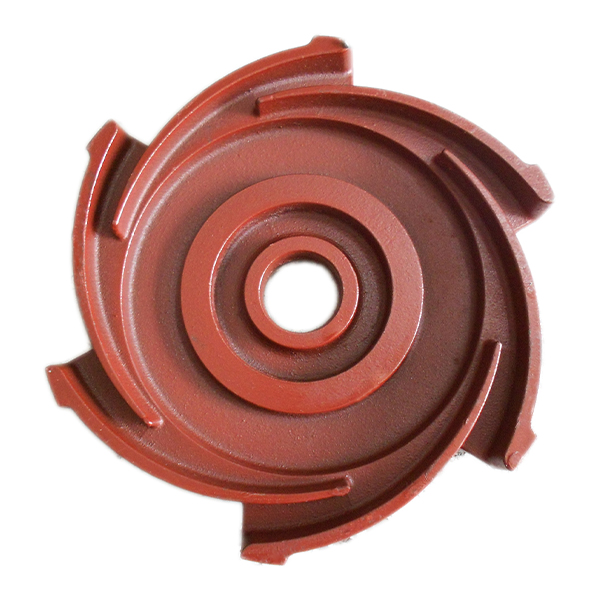Mobile:+86-311-808-126-83
Email:info@ydcastings.com
Exploring the Functions and Benefits of Connector Pumps in Modern Systems
Understanding Connector Pumps Essential Components in Fluid Transfer Systems
In industries ranging from manufacturing to agriculture, the importance of effective fluid transfer cannot be underestimated. Among the many components that facilitate this process, connector pumps play a crucial role. These pumps are designed to move liquids efficiently from one location to another, often as part of a broader fluid management system. This article will delve into the functionality, types, and applications of connector pumps, highlighting their significance in various sectors.
What is a Connector Pump?
Connector pumps are specialized machinery used to connect different systems or components in a fluid transfer setup. Their primary function is to transport liquids—be it water, chemicals, or other fluids—through pipes or hoses. The term connector emphasizes the pump's role in linking different parts of a system, ensuring smooth and efficient operation while preventing leaks and spills.
Functionality and Design
At the heart of every connector pump lies its design, which directly influences its performance. Most connector pumps operate on a simple principle they create a difference in pressure to move fluid from an area of higher pressure to an area of lower pressure. This could be done through various mechanisms, including centrifugal force, positive displacement, or peristaltic motions.
1. Centrifugal Pumps These are the most common type of connector pumps. They utilize a rotating impeller to increase the velocity of the fluid, which is then directed through a discharge pipe. They are ideal for high flow rates and are widely used in water supply and irrigation systems.
2. Positive Displacement Pumps These pumps work by trapping a fixed amount of fluid and then forcing it into the discharge pipe. They are better suited for applications requiring consistent flow at high pressure, such as in chemical processing.
3. Peristaltic Pumps These innovative pumps operate by compressing and releasing flexible tubes to move the fluid forward. This design minimizes contamination, making them perfect for transferring sensitive materials like pharmaceuticals or food products.
Advantages of Connector Pumps
The use of connector pumps offers several advantages
- Efficiency Connector pumps are designed to maximize fluid transfer efficiency. Their ability to maintain consistent flow rates reduces energy consumption and operational costs.
connector pump

- Versatility These pumps can handle a variety of fluids, including viscous substances and abrasives, making them suitable for diverse industrial applications.
- Safety With proper seals and connectors, these pumps can prevent leaks and spills, reducing the risk of environmental hazards and workplace accidents
.- Ease of Maintenance Many connector pumps are designed with ease of maintenance in mind. Regular checks and servicing can often be completed without extensive downtime, ensuring continuous operation.
Applications Across Industries
Connector pumps find applications in numerous fields, demonstrating their versatility and importance.
1. Agriculture In farming, connector pumps are essential for irrigation systems, helping to transport water from a source to fields. They ensure crops receive adequate hydration, contributing to improved yields.
2. Chemical Processing In chemical plants, connector pumps transfer hazardous materials safely and efficiently. They play a vital role in maintaining operational safety while handling volatile substances.
3. Water Treatment These pumps are critical in municipal water treatment facilities. They help in moving water through various treatment processes, ensuring clean and safe drinking water for communities.
4. Food and Beverage In the food industry, connector pumps are used to handle liquid ingredients and maintain hygiene during the transfer process, ensuring product quality and compliance with health regulations.
Conclusion
Connector pumps are indispensable tools in the modern industrial landscape, facilitating the efficient and safe transfer of liquids across various applications. Their design and functionality make them adaptable to a wide range of fluids, while their ability to reduce operational costs and ensure safety makes them a preferred choice across industries. As technology advances, we can expect further innovations in connector pump designs, enhancing their performance and expanding their applications. Understanding and leveraging these pumps can significantly benefit businesses, ultimately leading to improved productivity and sustainability.
-
Why Should You Invest in Superior Pump Castings for Your Equipment?NewsJun.09,2025
-
Unlock Performance Potential with Stainless Impellers and Aluminum End CapsNewsJun.09,2025
-
Revolutionize Your Machinery with Superior Cast Iron and Aluminum ComponentsNewsJun.09,2025
-
Revolutionize Fluid Dynamics with Premium Pump ComponentsNewsJun.09,2025
-
Optimizing Industrial Systems with Essential Valve ComponentsNewsJun.09,2025
-
Elevate Grid Efficiency with High-Precision Power CastingsNewsJun.09,2025











